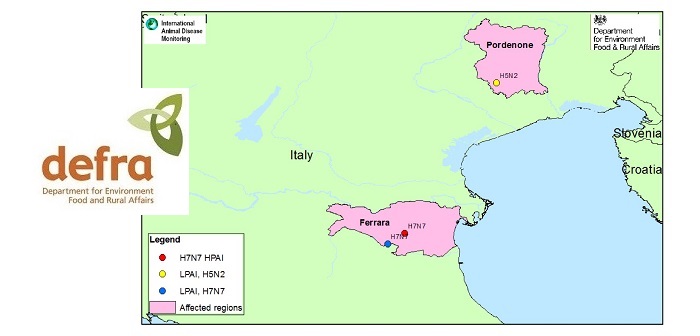Defra officials are continuing to monitor the investigation of an outbreak of H7N7 avian influenza of high pathogenicity in poultry in Italy, stating that it will be important to await full laboratory and epidemiological findings before drawing firm conclusions.
The outbreak, which was reported by the Italian Authorities, involved “commercial chicken layers in the Ferrara region” and resulted in 17,000 birds being humanely destroyed. Restriction zones have duly been put in place in line with EU rules.
“If this is a wild bird strain of H7N7 which causes HPAI infection in poultry, as opposed to a mutation from an LPAI strain to an HPAI strain in poultry, then this would be concerning and novel,” said Defra. “However it will be important to await full laboratory and epidemiological findings before drawing firm conclusions.
“It is possible there is an as yet undetected H7N7 HPAI virus circulating in poultry or captive birds elsewhere which has not caused clinical signs, in which case this reinforces the difficulties experienced with using passive surveillance only for some of these viruses and the need to enhance such systems through early reporting where signs are not suggestive of AI, therefore utilising the Testing to Exclude (TTE) scheme.
“We will continue to monitor the situation closely.”
Defra also took the opportunity to “remind” all poultry keepers to maintain high standards of biosecurity, to remain vigilant and to report any suspect clinical signs promptly.
Headline image shows the Italian outbreak areas, as detailed on Defra’s report


